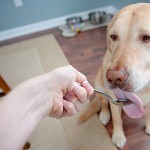Our furry friends bite an estimated 4.5 million Americans each year, according to the Centers for Disease Control and Prevention, sending almost 1,000 people to emergency rooms every day. Although that means bites are relatively common, the risk of contracting rabies is much lower than most people think (in the United States, anyway, where dogs are immunized for it; in other countries, the risk is higher).
The majority of dog bites are minor and don’t require stitches, but make sure to wash the bite area thoroughly withsoap and lots of water. (Don’t clean a bite with hydrogen peroxide, as that can damage healthy tissue.) If a bite is a puncture wound, the infection could be deeper than you can see, so it’s a good idea to make an appointment with your doctor even if the wound doesn’t look serious.
“The concern with any bite is infection,” says Jon Prince, M.D., a board-certified emergency medicine practitioner at Providence Tarzana Medical Center in Tarzana, California “Because the victim comes in contact with the dog’s saliva, it’s considered a ‘dirty’ wound,” so doctors very often prescribe antibiotics (usually Augmentin) if you’ve been bitten.
Many people are afraid that a strange dog might bite them—but you’re actually more likely to be bitten by your own dog (or a friend’s pooch). Startling a sleeping dog or messing with her puppies or food could make even a gentle dog turn aggressive. To cut your risk, avoid making direct eye contact with dogs you don’t know, and keep your own dogs under tight control when introducing them to new people (particularly children). Don’t encourage aggressive behavior by playing tug-of-war with your dogs, and make sure to get them spayed or neutered, which dramatically reduces the likelihood that they’ll bite.











